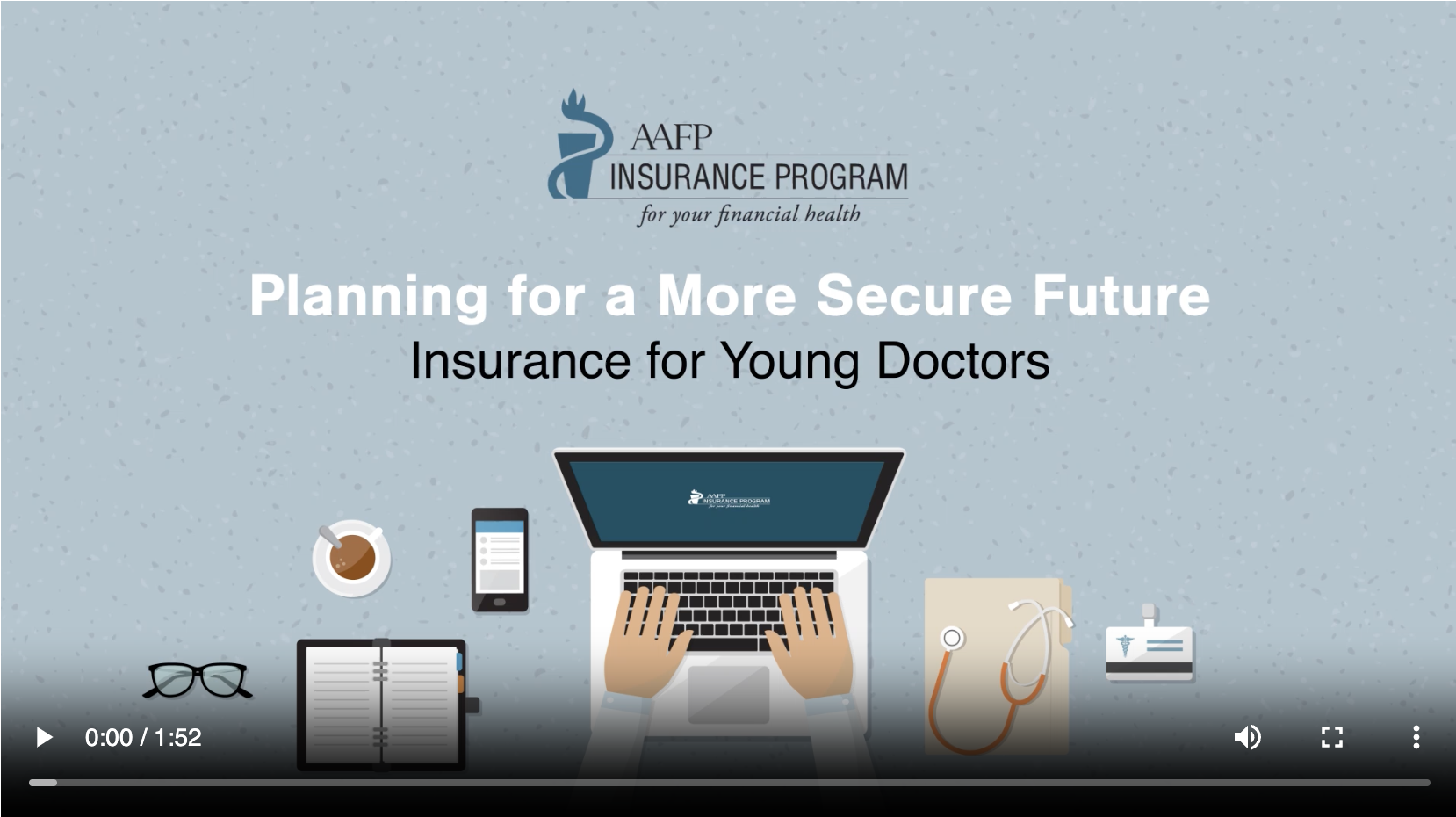
You know the importance of helping your patients enjoy optimal health. But what about you? Specifically, what are you doing to help ensure your financial health?
Debt management, tax planning, estate planning, children’s college fund, retirement planning, and the legacy you want to pass along to your family—these are just a few of the areas you need to be addressing. You need a prescription for financial health that meets your specific needs.
Your optimal financial health starts with a plan designed and updated to meet your financial and life goals at all stages of your life. To help you, look for a specialist—a financial planner who understands the unique needs and conditions of the physician.
Once you find a financial advisor with whom you feel comfortable, schedule an annual checkup to evaluate what’s changed in your life and work situations.
Here’s a checklist of some of the key financial issues you need to address.
Set a Budget You Can Live By
If you’re just starting out or having trouble managing your money, create a budget. Just the exercise of discovering how you’re spending your money is invaluable. Review your credit card bills and checking account history to see how you’re using your money. If you still pay cash, collect and analyze your receipts.
Use this information to determine how much you need to live, how much you “waste,” and how much you might be able to direct toward debt payments, savings and investing.
If you decide you need a more formal way to manage your budget, you could create a spreadsheet or use an accounting/budgeting package, such as Quicken.
Create a Smart Plan for Paying Down Debt
Young physicians typically start their careers carrying a large student debt load. You need a plan for repaying your debt.
Itemize all your debts and loans. List the amount owed and the interest rate. While you need to meet your monthly repayment commitments, you should direct any extra money to the debt with the highest interest rate. It costs you the most; get it paid off first.
You could consider refinancing at a lower interest rate or consolidating debt. But look at all your options and be careful. If you go with a private lender for student loans, you may lose your rights under the federal student loan program.
Also, avoid any debt deferment or forbearance options if you’re considering a public service loan forgiveness (PSLF) program. PSLF provides for debt forgiveness only after ten years of qualifying payments, and deferment and forbearance will count against that time.
Ensure Against Disaster with Adequate Insurance Coverage
If you’re considering life insurance, remember that the primary purpose is to protect your dependents—to help pay debts, mortgage, education and living expenses in the event of your death. That’s the purpose of term life insurance.
You’re probably wondering how much you need. One approach is to multiply your income by 10, and if you have children, add in an additional $100,000 for each child’s college expenses. Another is the DIME formula: Add up Debt, Income, Mortgage and Education and multiply by the number of years you need to cover.
In addition to home, auto, health (and malpractice) insurance, the one type of insurance that’s often overlooked is disability insurance. One in three doctors will have a period of disability during their careers, and there’s a 40% chance that the disability could last for seven years or longer.
When looking into disability insurance, pay close attention to the terms for the payout of benefits. You probably want a policy that provides full benefits even if you transition to a different occupation or area of medicine. Group disability, often the most affordable, tends to have the most restrictive payout policy.
And if you’re at the beginning of your career, look for a future purchase option or future increase option that permits you to apply for additional coverage as your income grows—regardless of your health and without having to add a separate, new policy.
Protect Your Legacy with a Will
Your will is a legal document that states how you want to disperse personal property and assets, who will manage your estate (as an executor) and who will be a guardian to any minor children or dependents.
No one likes to think about the inevitable, but you’ll appreciate the peace of mind that comes with knowing you’ve planned for your loved ones. Having a will saves your family time and money.
If you don’t have a family, it’s better that you decide where your assets go (e.g., alma mater, charity or organization of your choice) than dying intestate and leaving that decision to the state.
If your needs are simple and you don’t want to involve an attorney, look into online will services and estate-planning software. Just be careful to meet any state legal requirements. Also, couples should make separate wills.
Finally, store your original will in a safe place (e.g., a waterproof, fireproof safe). If you have a personal safe deposit box, your family may need a court order to open it and retrieve your will. You can also give signed copies to your attorney and a few trusted friends.
Establish an Emergency Fund
Because a disaster can strike at any time, you need an emergency fund. Although you don’t want to have to dip into retirement funds or run up credit cards, the fact is only 39% of Americans can cover even a $1000 emergency out of pocket.
How much you put aside will depend on your expenses, the duration you want to plan for and your ability to save. Ideally, you should be able to cover the cost of food, housing, insurance, transportation, utilities and debt payments for three to six months. The exact amount will change with your age and responsibilities.
Invest for Your Future
You love what you do, but the day most likely will come when you either can’t practice or don’t want to work at all. You may want more time for travel, vacations and hobbies. Will you have the money to support your lifestyle and activities?
The key to investing and saving for the future is to start early. You can invest and save smaller amounts and enjoy the power of compound interest. Also, you’ll have more time to weather the ups and downs of the markets.
Through work, you’ll have access to various tax-deferred, tax-advantaged and tax-qualified plans. The plan will vary depending on whether you are a physician employee, self-employed or a physician employer, as well as the size of the group with which you are affiliated. Also, take advantage of a personal IRA, Roth IRA, Spousal IRA and Health Savings Account.
As you prepare a prescription for your financial health, try to keep everything as easy and stress-free as possible. In addition to addressing your debt, insurance, savings and investing needs, consider automating essential obligations, such as debt payments, tax installments, mortgage or rent and monthly savings.
And finally, have a frank conversation with your financial advisor about your goals, risk tolerance, retirement timeline and the need for a balanced asset allocation plan. Then revisit it annually or with significant life changes, such as marriage or the birth of a child.




